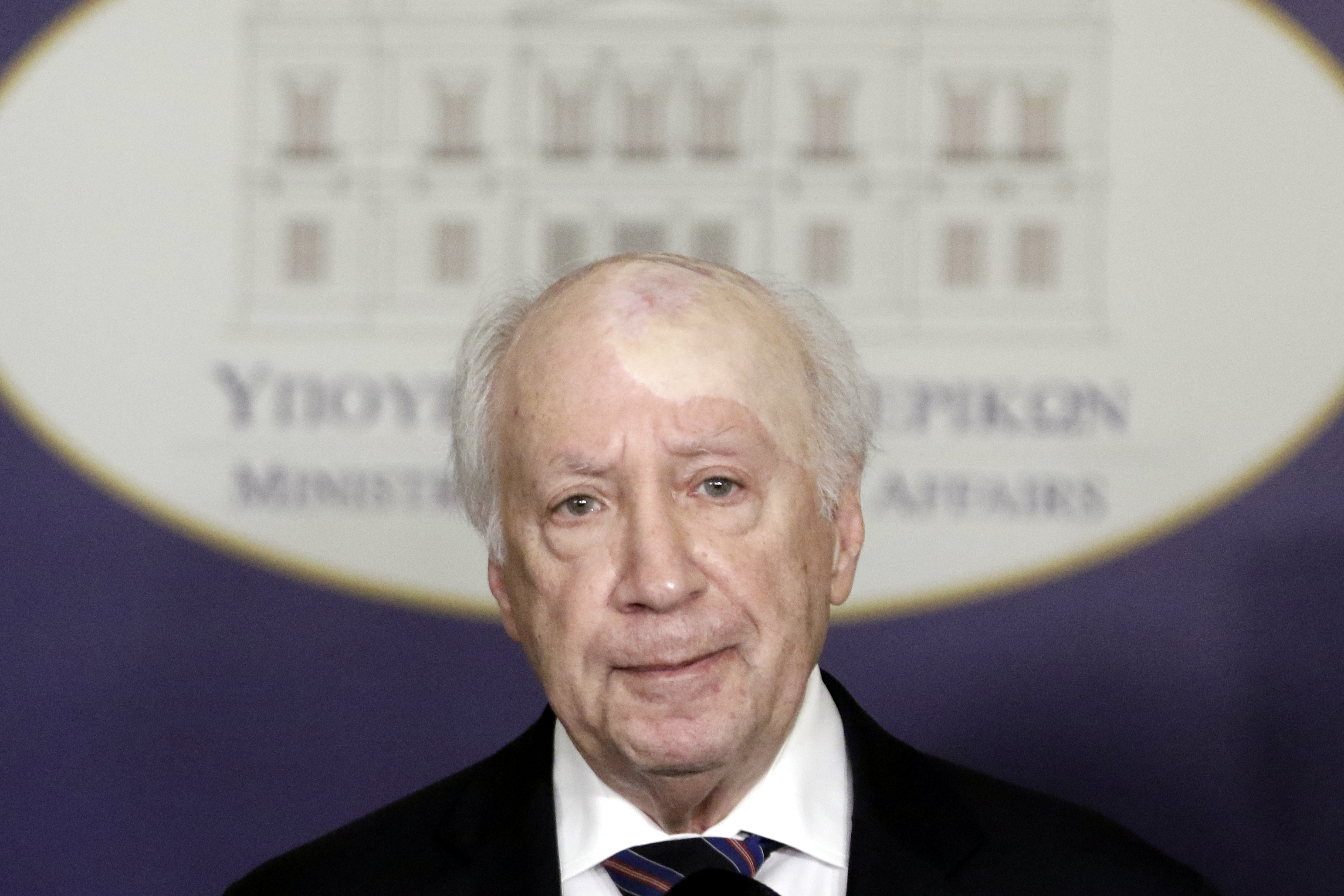UN envoy Matthew Nimetz, in ideas presented to Athens and Skopje, calls for FYROM’s new name, if a settlement is reached, to be used by all, but with exceptions within FYROM, as To Vima’s exclusive report on the core negotiating document indicates.
Regarding the country’s official name, it will have a modifier attached to the name Macedonia – such as Gorna, Severna, Nova, or Vardarska. The official short name will be listed in alphabetical order under the letter M, in cases where the name of the country appears in lists with other states. For purposes of brevity, the Nimetz text uses the name Gorna Makedonija as the basis for examples of usage.
Culture and language
As for adjectival references to the nationality of the citizens of FYROM, they will be referred to as Makedonski (Macedonian). For example: He is a Makedonski citizen, or He is a citizen of Gorna Makedonija.
The proposed official name for the language will be Makedonski (Macedonian), or official language of Republika Gorna Makedonija.
Other UN member-states and third parties may, at their discretion, translate the new name in all other languages, in accordance with accepted usage in each language.
Scope of name’s use
Regarding the scope of use, the UN Security Council will pass a resolution approving the new name, Republika Gorna Makedonija, which will then be ratified by the UN General Assembly.
The new name will be used in all multilateral ties, international situations, treaties, agreements, and official documents.
The UN document calls upon FYROM to make its best efforts, so that the new name will be used in the UN and other multinational organisations.
The term Makedonija, either in its Slavic rendition or translated cannot on its own be used by FYROM as the official name of the state in any framework. The provisional name Former Yugoslav Republic of Macedonia will cease to be used.
The term Republika Makedonija, the country’s current constitutional name, will continue to be used domestically.
Nato, EU admissionNo later than the date of FYROM’s admission to Nato, Skopje will take all necessary steps so as to conduct all its bilateral relations with all countries with the name Republika Gorna Makedonia. Admission to Nato is based on the Alliances procedures and rules [unanimous consent to admit a new member].
No later than the date of Skopje’s admission to the EU, the new name will be the only one used domestically and internationally, but there will be domestic exceptions in FYROM. The current constitutional name can be used domestically in activities that are not under the jurisdiction of the EU.
As for territorial claims and hostile statements of an irredentist nature, both parties will denounce them.
Athens and Skopje will confirm their respect for each other’s patrimony and cultural heritage.
Commercial use of name Macedonia
Regarding commercial use of the name Macedonia and its derivatives, it will be governed by the principle of non-exclusivity, and the two sides via official and commercial channels will reach understandings on the commercial use of the name Macedonia.
Under the title “Membership in the European Union and the North Atlantic Treaty Organisation/ISO Codes”, Greece will agree to raise no objections to Skopje being admitted to Nato and the EU, and Athens will assist Skopje in maintaining the proper codes in the International Organization for Standardization.
On the crucial issue of implementation, Nimets proposes that the UN Secretary General prepare a report for the Security Council, which will duly adopt the settlement, which in turn will be ratified by the UN General Assembly.
There will also be a binding bilateral agreement between the parties, and binding, credible, and irrevocable procedures in FYROM, to pass legislation and issue an executive act, and any other necessary measures to ensure implementation.
The UN Secretary General and the EU are to play a guiding role throughout the transitional period.
Angelos Athanasopoulos



